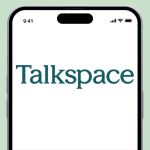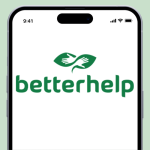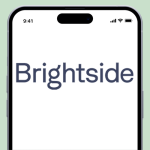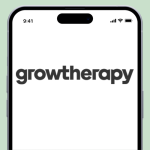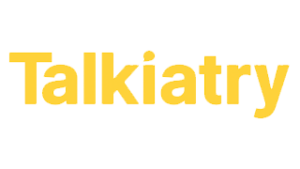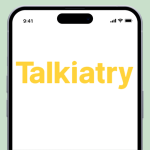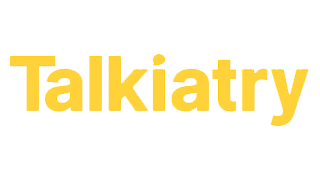Table of Contents
- We’ve spent more than 10,000 hours researching online therapy and online therapy platforms.
- We’ve surveyed over 2,000 online therapy users, conducting in-depth interviews with users and therapists.
- We regularly consult licensed mental health experts, including therapists, psychiatrists, and counselors who specialize in supporting people with ADHD.
- We vet each online mental health platform for how the platform supports people with ADHD and whether there are any limitations to their care.
Learn more about how we tested online therapy platforms for ADHD.
Key takeaways
- Attention-deficit/hyperactivity disorder (ADHD) is a neurodevelopmental disorder that affects an estimated 7 million children and almost 8 million adults in the United States.
- Studies show that a combination of medication and therapy can be effective for managing ADHD symptoms in adults.
- Most online therapy and psychiatry platforms don’t provide prescriptions for stimulant medications, which can be a treatment option for many people with ADHD.
- Talkspace is our top pick for the best online therapy platform for people with ADHD. We review BetterHelp, Brightside, Talkiatry, Headspace, and Grow Therapy.
Attention-deficit/hyperactivity disorder (ADHD) is a neurodevelopmental disorder that affects both children and adults. Symptoms can include trouble focusing or concentrating, hyperfocus, feelings of restlessness or agitation, impulsivity, disorganization and forgetfulness, and trouble managing feelings like anger or frustration.
Behavior therapy or psychotherapy may be recommended along with medication for children over six and adults with ADHD. Tatiana Rivera Cruz, a licensed clinical social worker at ADHD Advisor, shares that therapy can help you better understand your condition and develop skills to manage it more effectively. These can include emotional regulation and social skills, time management skills, and creating a healthy daily routine.
While researching and testing online counseling, we looked for platforms that could specifically support people with ADHD, including their costs, plans, and unique features.
Our picks of the best online therapy platforms for ADHD
- Talkspace: Best overall
- BetterHelp: Best for counseling
- Brightside: Best for developing coping skills
- Grow Therapy: Best for choosing your own provider
Our pick of the best online psychiatry platform for ADHD
- Talkiatry: Best for medication management
What to know about online telehealth platforms and ADHD management
Psychiatry providers on online mental health platforms may not be able to prescribe all types of medication. While many online psychiatrists can prescribe certain common medications for anxiety and depression, they may not be able to prescribe controlled substances, like stimulants for ADHD.
The types of medications that can be prescribed online are determined by regulations within each state. Some states, for example, require an in-person consultation before you can be prescribed medication. It’s important to ask about the requirements and restrictions in your state when pursuing treatment.
Talkspace: Best overall
Why we choose Talkspace as best overall
Talkspace offers online individual therapy for adults and teens managing ADHD symptoms. We like that it accepts insurance, including Medicare in some states, and offers appointments with an online psychiatrist for adults over 18 years old. This allows people with ADHD to find support through therapy and psychiatry in one platform. Talkspace users have a dashboard to track their short-term and long-term goals when they use the platform, which can help users with ADHD be mindful of their progress with therapy.
Talkspace tester insights
Talkspace has three plans to choose from. Its messaging, therapy, and workshops plan gives users access to virtual workshops to build helpful skills and explore mental health topics. Unlike BetterHelp’s group sessions, Talkspace’s workshops aren’t small groups of individuals sharing their experiences; rather, they are virtual lessons with interactive activities and reflection periods. They currently do not offer any workshops specific to ADHD, but there are workshops on individual, parenting, and relationship topics that can still benefit adults with ADHD. For example, a “Making Mindfulness Easy” workshop teaches participants mindfulness exercises to help them manage feelings of being overwhelmed.
The Talkspace platform has a Clinical Progress dashboard that lets users track progress in their quality of life and long-term and short-term goals. Our Handbook Team tester appreciates the feature, especially because it reminds them to reflect on what they are working on in the sessions with their therapist.
From our tester
“It was nice to see some objective goals generated from a professional’s standpoint to motivate me day-to-day.”
Tatiana Rivera Cruz, LCSW, says that having clear and achievable goals set by you and your provider can help you more effectively resolve your pressing mental health concerns and improve your daily functioning with ADHD.
Talkspace has providers that are in-network with many insurance plans, including Medicare in some states. Read more about other platforms that accept insurance in our review of online therapy that takes insurance and our review of affordable online therapy platforms.
Talkspace psychiatry providers can diagnose and treat people with ADHD, however, they cannot prescribe stimulant medications over the platform. This means that if this type of medication therapy is recommended for you, you may have to receive it from an in-person provider. Talkspace psychiatry providers can prescribe certain non-stimulant medications that are sometimes used to help treat ADHD, like selective norepinephrine reuptake inhibitors (SNRIs) or norepinephrine and dopamine reuptake inhibitors (NDRIs), including Wellbutrin.
What other Talkspace users are saying
In our October 2023 survey of online therapy users, Talkspace users identified trustworthiness, affordability, and being able to choose their therapist as their top three most important factors in choosing this online therapy platform. Talkspace accepts Medicare and other major insurance plans, which can help make ongoing therapy more affordable.
When we surveyed 100 Talkspace users in February 2024, we learned that four in five users (83 percent) rated their overall satisfaction with the platform as eight out of 10 or higher. In addition, 85 percent of Talkspace users were satisfied or very satisfied with their therapists on the platform.
Read our full review of Talkspace.
BetterHelp: Best for counseling
Why we choose BetterHelp as best for counseling
BetterHelp is an online therapy platform that offers a monthly subscription with four online therapy sessions and supportive extra features. BetterHelp is our top choice for people looking for counseling support for their ADHD symptoms because the platform has thousands of providers, and our tester found it easy to find the right one for them. BetterHelp also offers online group sessions specific to living with adult ADHD.
BetterHelp tester insights
BetterHelp initially matches users with a therapist based on their intake questionnaire, which asks about therapist preferences such as gender identity and area of focus. In any type of therapy, it’s important to find a therapist that you’re comfortable with and can help you reach your mental health goals. Therapists have different availability, approaches, and identities that may determine whether they’re right for you. If the provider you’re matched with isn’t a great fit, BetterHelp users can switch therapists anytime and for any reason. It was easy for our tester to switch therapists and find a counselor they’re comfortable with.
BetterHelp has many optional self-guided resources, such as a digital journal and group sessions. In particular, we like that there are weekly group sessions specific to supporting people with ADHD. Our tester finds the BetterHelp group sessions a standout feature from other online therapy experiences, citing that their experience attending a group session made them feel seen, heard, and connected to other attendees going through similar struggles.
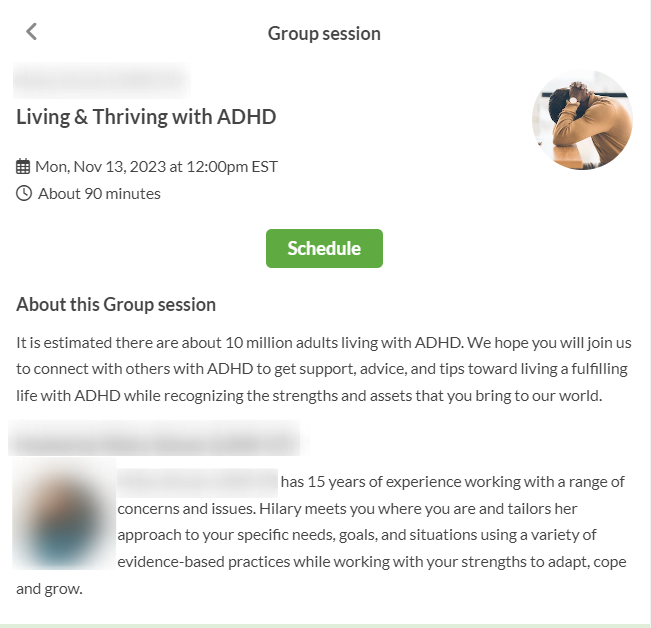
Part of managing ADHD for adults is creating structure to help prevent being overwhelmed and distracted. The BetterHelp app has a digital journal with daily prompts for you to reflect on but it’s important to make an intentional plan to use them. Working with your BetterHelp therapist can help you build a routine that works best for you.
Note: BetterHelp does not provide psychiatry and does not prescribe medications.
What other BetterHelp users are saying
Most BetterHelp users in our surveys had positive experiences with their providers on the platform. For example, in our February 2024 survey of 100 BetterHelp users, respondents indicated that their therapist treated them with respect (91 percent), adapted their therapeutic style to the user’s individual needs (82 percent), and asked for feedback on their care (80 percent).
In our October 2023 survey of 600 online therapy users, 86 percent of BetterHelp users rated their therapists as “good” or “very good,” 10 percent more than the average online therapy user.
Learn more in our in-depth BetterHelp review.
Brightside: Best for developing coping skills
Why we choose Brightside as best for developing coping skills
Brightside offers both online therapy and psychiatry, and its combined plan can help people with ADHD manage their treatment on one platform. Although it can’t prescribe stimulant medications for ADHD, Brightside psychiatry providers can prescribe SSRIs and NDRIs, similar to Talkspace. The platform features unique self-guided resources called “Lessons,” based on the Unified Protocol, a type of cognitive behavioral therapy (CBT) that helps people manage strong emotions, no matter the diagnosis. Brightside could be a good fit for people with ADHD and who have additional concerns like anxiety and depression, as its lessons can help develop coping skills to support overall mental health.
Brightside tester insights
Our tester finds that the self-care lessons on Brightside complement its online therapy and psychiatry sessions. The tester’s therapist introduced them as an optional tool to use between sessions. The lessons consist of 10 modules that cover topics including “Breaking the Cycle,” “Mindful Awareness,” “Emotion Driven Behaviors,” and “Physical Sensations.” Our tester said that they found the language of these lessons “validating, friendly, and encouraging,” and that the first lesson “emphasized the importance of planning and keeping goals in mind” for therapy. While these lessons are not specific to ADHD, necessarily, they can help users learn new skills and tools to manage their overall mental health and get more out of their therapy.
From our tester
“I love the short videos you can do in between sessions to work on managing anxiety and stress.”
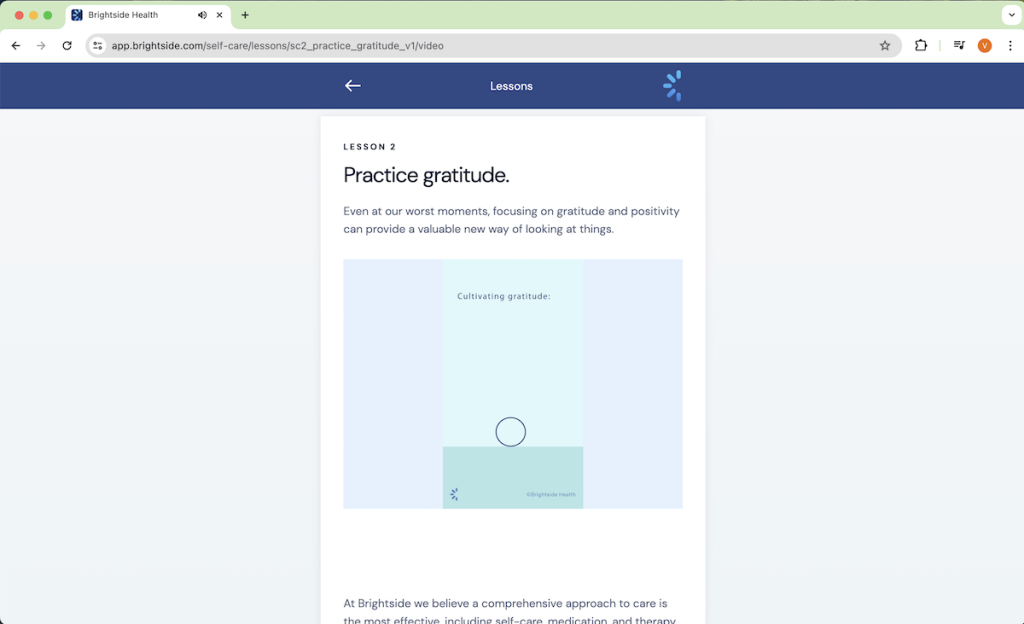
Brightside matches you with a provider based on your preferences instead of letting you choose. If you want to switch therapists, you have to contact customer service to get paired up with a new provider. This request process was an extra step for our tester, but they were pleased when customer service replied within minutes with new matches to continue their care.
Note: Brightside does not prescribe controlled substances. Similar to Talkspace psychiatry, if you are recommended medication therapy to manage ADHD symptoms, you may not be able to receive all the options for care through Brightside.
Brightside isn’t a good fit for people who:
Brightside states that the platform isn’t a good fit for people who:
- Are younger than 18 years old.
- Engage in ongoing, high-risk self-harm.
- Have schizophrenia or symptoms of psychosis.
- Have bipolar disorder I or are experiencing acute mania.
- Have severe substance abuse.
- Have medically unstable eating disorders.
- Have kidney or liver disease, seizures, or cardiac arrhythmias.
In general, these are circumstances when most online providers may recommend in-person care. We appreciate that Brightside is upfront about who they can and cannot treat.
What other Brightside users are saying
Results from a survey of 100 Brightside users in February 2024 find that the majority of Brightside users (83 percent) used insurance to pay for their mental health care on the platform. Despite being matched with their therapists instead of choosing one, three in four Brightside users are satisfied with their initial matches without switching providers.
Read our complete review of the platform in our Brightside review.
Grow Therapy: Best for choosing your own provider
Why we choose Grow Therapy as best for choosing your own provider
Grow Therapy is an online mental health platform offering pay-per-session in-person and virtual appointments for therapy and psychiatry. It accepts insurance, offers different types of mental health appointments, and makes it convenient to find and schedule an appointment with a provider of your choice. Our Handbook Team likes the platform, which lets you filter for providers that specialize in supporting people with ADHD. It also provides online family therapy for parents who have children with ADHD.
Grow Therapy tester insights
Grow Therapy offers family therapy, individual therapy, couples therapy, and psychiatry appointments. Family therapy can help families navigate an ADHD diagnosis for a child by improving the interactions between children and parents, fostering a positive and nurturing home environment. Additionally, couples therapy can be beneficial when one partner in a relationship has ADHD. These therapy sessions can help both partners to better understand the effect ADHD has on the relationship and to identify and resolve any frustrations or misunderstandings by building better communication skills.
In addition, we like that Grow Therapy users can book online or in-person appointments for their mental health care. In-person appointments can provide certain benefits for those with ADHD, including the ability to receive a diagnosis, or a prescription for medication, when appropriate. In addition, in-person sessions may be more suitable for those who haven’t had a psychiatric evaluation before. Read more about choosing between in-person and online treatments below .
A note on in-person psychiatry visits
Even if you are diagnosed with ADHD after an online psychiatry evaluation, in-person visits may still be needed in some cases to start or continue your care.
The ability for a psychiatry provider to prescribe controlled medications depends on state and federal regulations, which can vary. Because of the COVID-19 pandemic, the Drug Enforcement Agency (DEA) and the Department of Health and Human Services (HHS) created more flexible rules around the telehealth prescriptions of controlled substances, making it possible for some individuals to receive treatment without an in-person evaluation. This change is temporary, though, and is only extended until December 31, 2024.
Also, some states require in-person appointments regularly (e.g. annually) in order to continue prescribing stimulant medications for someone with ADHD. Some individuals may also need to get regular urine or blood tests in order for providers to understand whether their current medication type and dosage is effective and safe.
If you’re considering starting or already are on stimulant medications for ADHD and you’re interested in an online psychiatry platform, you may want to consult with a primary healthcare provider or an in-person psychiatrist to better understand your needs.
Compared to online therapy platforms like Talkspace and BetterHelp, the Grow Therapy platform does not include many extra features or resources. It is only designed for making appointments and attending them via a virtual video call. Although extra resources such as worksheets or mood trackers aren’t built into the platform, our tester still receives individualized support from the provider during their sessions. Their provider also shares links to additional reading and exercises to complement their sessions.
Grow Therapy doesn’t have a mobile app to access your account or conduct visits. This might be inconvenient for some who prefer attending appointments on a phone or tablet, but our tester didn’t have a problem using the platform via browser. They did encounter a technical issue once where they had trouble connecting to the call, which was resolved by joining from another device.
What other Grow Therapy users are saying
In our October 2023 survey of 600 online therapy users, over half (56 percent) of respondents were able to connect with a mental health provider within a week of signing up. Our Handbook Team was able to find an appointment within two days on the platform.
To learn more about this platform, read our full Grow Therapy review.
If you need online psychiatry services for ADHD
Talkiatry: Best for medication management
Why we chose Talkiatry as best for medication management
Unlike some other platforms that offer online psychiatry, Talkiatry providers may provide access to stimulant medication therapy where appropriate, but only to patients with an in-network insurance plan. This is also dependent on the state laws regulating controlled substances and telehealth prescriptions where you live. Talkiatry can also treat children and teens with ADHD. Families with children as young as five and teens who have ADHD can get matched with a child and adolescent psychiatrist (CAP) who specializes in supporting mental health in children and teens.
Talkiatry tester insights
Users on Talkiatry can browse provider profiles to see what types of clinicians are available, but the platform matches patients to providers based on coverage and preferences. Our tester finds it helpful that their matched providers specialize in the tester’s areas of concern.
Talkiatry isn’t a membership-based online mental health platform, but it does include messaging with your providers through the platform, which can be helpful for users who are starting a new medication therapy. Our tester notes that their providers responded within a few hours each time they messaged.
Unlike Talkspace and Brightside, Talkiatry psychiatry providers can, depending on where you live, prescribe controlled substances if appropriate. This makes Talkiatry a potential online option for children, teens, and adults with ADHD to receive psychiatric care and medication management. If you are considering online counseling for your teen, read our full review of the best online therapy for teens.
Talkiatry does offer online therapy, but only if you are already seeing a Talkiatry psychiatry provider. Once you connect with a Talkiatry psychiatry provider, they can refer you to a Talkiatry therapist as part of your treatment.
Note: Although Talkiatry treats people with ADHD, it doesn’t take patients who have complex conditions requiring in-person care, such as eating disorders and schizophrenia. Also, child and adolescent psychiatrists aren’t available in the following states as of June 2024: Arkansas, Louisiana, Maine, Montana, Nebraska, Oklahoma, and Vermont.
What other Talkiatry users are saying
When we surveyed 100 Talkiatry users in February 2024, 84 percent of respondents used the platform for medication management. Though users are matched with their providers on the platform, 87 percent of our survey respondents were satisfied or very satisfied with their provider. However, if users needed to switch providers, only 62 percent of respondents thought it was a quick and easy process.
Read our full review of Talkiatry.
Other helpful resources
Children and Adults with Attention-Deficit/Hyperactivity Disorder (CHADD) is a nonprofit organization that offers resources for people with ADHD such as:
- People looking for a support group: CHADD local affiliate locator.
- Parents looking for training to support their child with ADHD: A list of in-person and online parent training programs.
- For people looking for support outside therapy and psychiatry, such as coaching and professional organizers: See the CHADD professional directory.
- Adults who are recently diagnosed with ADHD: A training course about your ADHD diagnosis.
While it is not an online therapy platform, we find the Headspace app can offer tools to help with ADHD. It can help you learn skills to improve and maintain your mental health through mindfulness, which may also help you manage ADHD symptoms. The app offers daily videos, activities, and readings for practicing mindfulness and meditation skills.
- Headspace app: $12.99 per month or $69.99 per year ($5.83 per month); free trial available up to 14 days.
- Headspace mental health coaching: $99.99 per month, includes three text-based sessions a month.
- Discounts: Family and student discounted plans available. Free for K–12 educators in the United States, United Kingdom, Canada, and Australia.
Though Headspace doesn’t provide specific resources for people with ADHD, practicing mindfulness and meditation may help improve focus and manage ADHD symptoms. Mindfulness-based meditation is the practice of being consciously aware, present, and focused. Studies in adults have found that mindfulness-based meditation is an effective way to improve attention. Kristie Tse, licensed mental health counselor and clinical director of Uncover Mental Health Counseling in New York, New York, shares, “Mindfulness techniques support increased focus and reduce impulsivity by training clients to stay present.”
Mindfulness-based meditation and exercise are also found to improve ADHD symptoms in children and youth. In addition to the meditation, sleep, and mindfulness resources, Headspace also offers exercise videos for mindful movement.
Brand to avoid
Done is an online psychiatry platform that specifically advertises services for ADHD treatment and management, but it may be one you want to avoid. On June 13, 2024, the Department of Justice announced it arrested the founder and CEO of the company, as well as the company’s clinical president, as part of an investigation into the company for healthcare fraud and illegally distributing controlled substances, specifically Adderall and other stimulants.
How we test and choose the best online therapy and psychiatry services for ADHD
Our first hand user experience
We research dozens of online therapy and psychiatry platforms and choose the best services to test as users. Our testers go through the process of signing up for the services, paying close attention to the user’s experience—for example, how users are matched with providers, insurance coverage, and the availability of appointments. Then, testers fully evaluate the platform’s offerings for four weeks, including attending online therapy and/or psychiatry sessions and exploring platform features. Finally, testers explore payment, billing, and interacting with customer service to learn about the platform’s transparency and how quickly users can connect with customer support.
User surveys and focus groups
We survey real online therapy and psychiatry users to understand their goals, concerns, and experiences. To date, we’ve surveyed more than 2,000 online mental health platform users.
We conduct in-depth focus group interviews to understand what matters to users in their online mental health journey. The responses inform our approach to researching, testing, and evaluating our choices for top online mental health platforms.
Expert insights
We interview practicing mental health professionals, therapy providers, and psychiatry providers to understand the benefits and limitations of delivering mental health care online. We also consult with experts who specialize in certain conditions to better understand the needs of patients with ADHD, best practices for management, and when online care can be an appropriate and effective part of a treatment plan.
Other factors we consider
We consider the following factors when evaluating the platforms we research and test:
Affordability
We review the cost of ongoing weekly live sessions with each platform. We look at the total price, whether platforms accept insurance or offer financial assistance, and features that add value, like digital journals, group sessions, and online workshops.
Availability
We evaluate whether online mental health platforms have providers in each state, how many providers users can choose from, and how users connect with the right providers for them. Where some platforms match users with their providers, other platforms may give you a search tool to help you choose one for yourself.
Medication management
Because some online therapy platforms also offer online psychiatry, we review whether the platform’s psychiatry providers can support people with ADHD. For example, though some psychiatry providers cannot prescribe stimulant medication through an online platform, providers may be able to still support people with ADHD by prescribing non-stimulant medications.
Read more about how we research and test online therapy platforms on our methodology page.
What is ADHD?
ADHD is a neurodevelopmental disorder that can affect a person’s behavior, focus, and mood. It is one of the most common disorders affecting children. According to the CDC, an estimated 7 million U.S. children between three to 17 years old have been diagnosed with ADHD. Though ADHD is typically associated with children and adolescents, it can still affect adults. Globally, it’s estimated that 3 percent of the adult population has ADHD.
ADHD is diagnosed by a licensed medical provider, typically a pediatrician or child and adolescent psychiatrist (CAP) in children. There’s no gold-standard test for ADHD; rather, it’s a comprehensive workup that considers the individual’s health history, physical examination, and intakes from parents and teachers. For adults, there’s a similar comprehensive evaluation of the individual’s health history, current symptoms, and physical examination.
Types of ADHD
There are three main types of ADHD:
- Inattentive type: Also called predominantly inattentive.
- Hyperactive-impulsive: Also called predominantly hyperactive-impulsive.
- Combination type: Also called combined.
For more information on the types and symptoms of ADHD, read our articles on ADHD in Children and ADHD in Adults.
Is it ADHD?
Struggling with focus, attention, or concentration isn’t a symptom unique to ADHD. There are other conditions that can present similarly to ADHD. For example, people with anxiety, substance abuse issues, sleep apnea, or hearing impairment may also experience symptoms similar to ADHD.
A qualified clinician will be able to consider an individual’s symptoms along with their health history, physical examination, and lab results to arrive at an accurate ADHD diagnosis.
Who should and should not use online therapy for ADHD
Online therapy is only one way that individuals can access mental health care. Depending on individual circumstances and goals, in-person therapy sessions may be more appropriate or effective for people with ADHD.
If you haven’t received an ADHD diagnosis before, you may want to get a comprehensive workup with a medical provider in-person to better understand how to manage your ADHD symptoms. “In-person sessions are ideal for building the therapeutic relationship, practicing skills learned in therapy, and for intake sessions that require more assessment,” says Sarah Whitmire, licensed professional counselor at Whitmire Counseling and Supervision in Houston, Texas.
Online therapy sessions require a space to have a comfortable and private conversation, but people with ADHD may get distracted in their own spaces. In our November 2023 survey of 600 online therapy users, about two in five (42 percent) shared that meeting their provider online made maintaining focus during a session more difficult than in person.
If you decide online therapy is right for you, you can review provider profiles and choose a provider based on their skills, training, and identities. In addition to support for ADHD symptoms, you may also want help for any other mental health concerns you have (such as anxiety or depression). Ask providers more questions about their approach or treatment plan to help align your expectations and gauge whether you feel comfortable working with them. Whether you opt for therapy online or in-person, a safe and trusting relationship with your provider can support an effective therapeutic relationship.
Questions to ask before starting online therapy for ADHD
Here are a few questions to ask yourself to help you narrow down what type of therapist could be best for you:
- Have you received an ADHD diagnosis before? If you’re looking to get a diagnosis for ADHD, seeing a therapist or psychiatry provider in-person may be more appropriate.
- Are you looking to start medication therapy or medication management? A medical or psychiatry provider can start medication therapy or help you manage your medications. Seeing a medical provider in person for a full examination may better help you to decide if medication is right for you.
- Do you have a suitable space to conduct online sessions? Online therapy sessions require a private, quiet space free of distractions to help ensure therapy is productive.
- What are your goals for therapy? As with in-person therapy, online therapy providers can tailor their approach to your goals for therapy. It’s important to explore what you’d like to achieve (such as learning new skills, emotional regulation, or improving your relationships) so that providers can better support your goals.
Can online therapists prescribe medication for ADHD?
Online therapy providers cannot prescribe medication for ADHD. Only licensed medical prescribers, including medical doctors (MDs), nurse practitioners (NPs), and board-certified psychiatry specialists, can prescribe stimulant medication for the treatment of ADHD.
In a mental health emergency
Online psychiatrists and therapists may not be the most appropriate resource to help in a mental health crisis. If you or someone you know is a danger to themselves or others around them, it is an emergency, and cannot wait for an online provider’s response.
Don’t wait. You can find help immediately by:
- Visiting urgent care, the emergency department, or calling 911.
- Calling or texting 988 for the Suicide & Crisis Lifeline.
- Chatting online at 988lifeline.org.
- Calling the Substance Abuse and Mental Health Services Administration (SAMHSA)’s Helpline at 1-800-662-4357 or text your zip code to 435748
All the above options will connect you with trained professionals who can provide crisis support. You can find even more resources, including international options, on our helpline directory page.
Our final verdict
Online therapy can be an important part of a comprehensive treatment plan for ADHD. Based on our extensive research, we chose the best online mental health platforms that can provide professional support and helpful resources to those with ADHD. We choose Talkspace as our best overall pick because it offers both online therapy and psychiatry, it takes multiple insurance plans, and users can track their treatment goals.
BetterHelp is suited for people who are looking to add therapy support and group sessions to their ADHD care. Brightside takes a unique approach by offering self-care lessons to build emotional regulation skills. Talkiatry can connect you to psychiatrists who can prescribe controlled substances and who specialize in treating children and adolescents with ADHD. Finally, Grow Therapy has a large network of providers to search from, including those who specialize in supporting people with ADHD.
Compare the best online therapy and psychiatry platforms for ADHD of 2024
| Services | Online therapy for individuals and couples; online psychiatry | Online therapy for individuals | Online therapy for individuals; online psychiatry | Online therapy for individuals; online psychiatry | Online therapy for individuals, couples, and families; online psychiatry |
| Ways to connect | Online video, voice, and messaging sessions; messaging anytime | Online video, voice, and messaging sessions; messaging anytime | Online video sessions; messaging anytime. | Online video sessions | Online video sessions; in-person sessions |
| Monthly cost | $276–$436 for online therapy; $299 for initial online psychiatry evaluation; $175 for follow-up online psychiatry sessions | $280–$400 | $95–$349 | Varies by provider and insurance coverage | Varies by provider and insurance coverage |
| Takes insurance? | Yes, including Medicare in some states | No | Yes, including Medicare and Medicaid in some states | Yes, including Medicare in some states | Yes |
Frequently asked questions
Online therapy can be one effective way to support people with ADHD, often alongside medication. In a small clinical trial, people who received both medication and therapy managed their ADHD symptoms more effectively than those who received therapy alone.
It depends on their license and training. Only licensed professionals, for example, a medical doctor, pediatrician, psychiatrist, psychologist, or clinical social worker can provide a comprehensive assessment to diagnose someone with ADHD. Certain online therapy platforms do not allow their therapists to diagnose conditions.
- Babinski, D.E. & Sibley, M.H. (2022, January). Family-based treatments for attention-deficient/hyperactivity disorder: A review of family functioning outcomes in randomized controlled trials from 2010 to 2019. Journal of Marital and Family Therapy, 48(1), 83–106. Link
- Steinman, K.J., Shoben, A.B., Dembe, A.E., & Kelleher, K.J. (2015, Jun. 25). How long do adolescents wait for psychiatry appointments? Community Mental Health Journal, 51, 782–789. Link
- American Psychiatric Association. (2023, Oct. 6). What’s Up With Telemedicine Prescribing of Controlled Substances? Link
- American Psychological Association. (2019, Oct. 30). Mindfulness Meditation: A Research-Proven Way to Reduce Stress. Link
- Lee, C.S.C., Ma, M., Ho, H., Tsang, K., Zheng, Y., & Wu, Z. (2017, December). The effectiveness of mindfulness-based intervention in attention on individuals with ADHD: A systematic review. Hong Kong Journal of Occupational Therapy, 30, 33–41. Link
- Bigelow, H., Gottlieb, M.D., Ogrodnik, M., Graham, J.D., & Fenesi, B. (2021, Jun. 13). The differential impact of acute exercise and mindfulness meditation on executive functioning and psycho-emotional well-being in children and youth with ADHD. Frontiers in Psychology, 12. Link
- What is ADHD? (2022, June). American Psychiatric Association. Link
- Data and Statistics on ADHD. (2024, May 16). Centers for Disease Control and Prevention. Link
- Ayano, G., Tsegay, L., Gizachew, Y., Necho, M., Yohannes, K., Abraha, M., Demelash, S., Anbesaw, T., & Alati, R. (2023, October). Prevalence of attention deficit hyperactivity disorder in adults: Umbrella review of evidence generated across the globe. Psychiatry Research: 328, 115449. Link
- Population Estimates, July 1, 2023. United States Census Bureau. Link
- Treatment of ADHD. (2024, May 15). Centers for Disease Control and Prevention. Link
- Wolraich, M.L., Hagan, J.F., Allan, C., Chan, E., Davison, D., Earls, M., Evans, S.W., Flinn, S.K., Froelich, T., Frost, J., Holbrook, J.R., Lehmann, C.U., Lessin, H.R., Okechukwu, K., Pierce, K.L., Winner, J.D., & Zurhellen, W. (2019, Oct. 1). Clinical practice guideline for the diagnosis, evaluation, and treatment of attention-deficit/hyperactivity disorder in children and adolescents. Pediatrics, 144(4) Link
- Choi, W., Woo, Y.S., Wang, S., Lim, H.K., & Bahk, W. (2022, Nov. 4). The prevalence of psychiatric comorbidities in adult ADHD compared with non-ADHD populations: A systematic literature review. PLoS ONE, 17(11). Link
- Cherkasova, M.V., French, L.R., Syer, C.A., Cousins, L., Galina, H., Ahmadi-Kashani, Y., & Hechtman, L. (2016, Oct. 6). Efficacy of cognitive behavioral therapy with and without medication for adults with ADHD: A randomized clinical trial. Journal of Attention Disorders, 24(6), 889–903. Link
- Symptoms of ADHD. (2024, May 15). Centers for Disease Control and Prevention. Link





